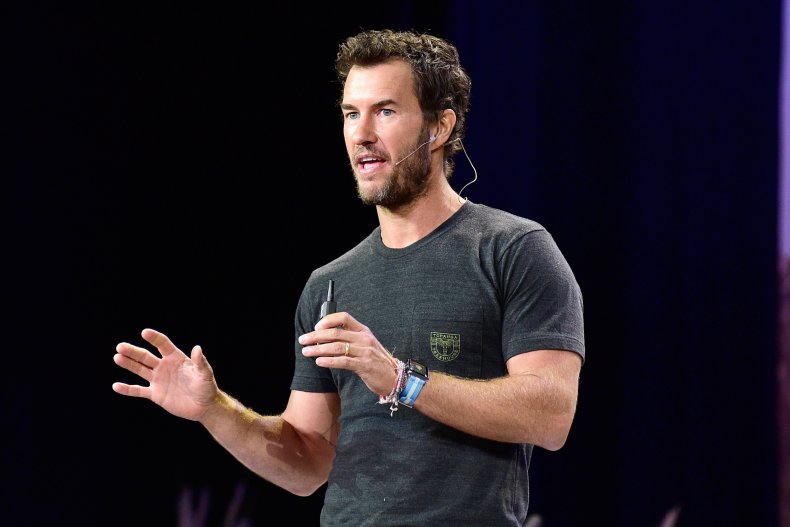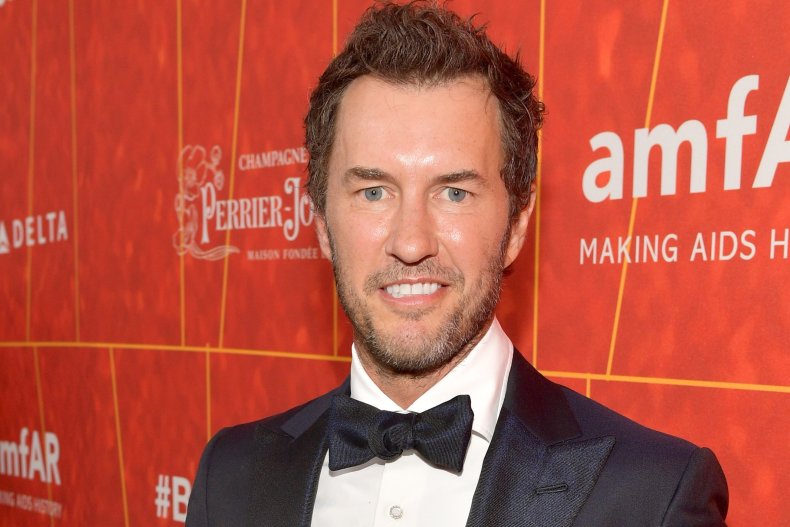I believe business and philanthropy can be an agent for positive change, and I've structured my life around this. I started Toms Shoes in 2006 after seeing firsthand how many children in Latin America were going without shoes.
The business model I pioneered was simple: For every pair of shoes sold, we would give one pair to a child in need. So far, Toms has given over 100 million shoes to children around the world.
Today I see a much graver problem facing our society, a mental health crisis rapidly growing in scope, severity, and cost.
That's why I'm pledging to give away and invest $100 million, a quarter of my net worth, to support research into the medical and mental health benefits of psychedelics such as MDMA, psilocybin, and plant-based substances such as ibogaine and ayahuasca.

More than one in five American adults have a diagnosable mental illness, and that number rises to one in three for 18 to 25-year-olds.
While some mental illness diagnoses, such as schizophrenia, are less prevalent— about one in 20 Americans have it—the experience of it can be devastating for those living with it and their families.
That's especially true when existing treatments are modestly effective at best. Almost nine million Americans receive medication for depression but, in nearly a third of those people, existing medication does not help.
Current treatments also offer limited relief to people with post-traumatic stress disorder (PTSD), which affects about five percent of the U.S. population in any given year, particularly our veterans.
Just under 17 American veterans take their own lives daily, a rate 57 percent higher than the overall American population when adjusted for age and sex.
To my knowledge, the $100 million I'm pledging is the largest amount ever committed by an individual to the arena of psychedelic-assisted therapies, but I hope that it will inspire other high net worth individuals and foundations to consider putting some of their capital into this hopeful, but overlooked, area.
Most of these funds will go to philanthropic efforts such as research and education but I'm also looking for investments that will propel breakthroughs via the private sector.
I've made a career investing for impact and I'm convinced that this is the right cause at the right moment in history.
In 2018 I found myself experiencing tremendous emotional and mental pain. To this day I don't know what caused this dark period in my life but it left me desperate to find a way out of my despair.
Friends suggested psychedelics could help me but because these substances remain illegal in the U.S. I had to travel overseas to experience ayahuasca, a plant-based drink used by indigenous peoples in Latin America for centuries.
The experience transformed me, reconnected me with my faith and helped me cope with the pain I was feeling. I consider myself lucky: most people either do not have the resources to do what I did or would prefer to use Food and Drug Administration-approved treatments.
By pledging $100 million of support, I hope to ensure the FDA approves clinically tested psychedelic treatments, to enable access to those treatments for those in need and to help identify new modalities of treatment.
I also deeply hope this will encourage others who feel the way I do to put their money where their hearts, heads and experiences are.
Recent research offers promising examples of success in treating mental illness. In 2021, a consortium of researchers reported that therapy paired with MDMA, the party drug commonly known as ecstasy, had a dramatic effect on people with severe PTSD.
Two-thirds of this study group, who received MDMA-assisted therapy, no longer had diagnosable PTSD two months after completing it, despite having been diagnosed with it for an average of 15 years before the study.
Unbelievably, this was the first-ever FDA Phase 3 trial of psychedelic-assisted therapy—but it won't be the last.
A lot of promising, university-led research on psychedelics was halted in the 1970s and 1980s, when these substances were banned. Yet, today, medical researchers see them as potential solutions in areas of mental health, where we currently have too few or none at all.
In 2020, the United States spent about $280.5 billion on treatment for mental health care and substance abuse. At the same time, public attitudes toward psychedelics appear to be softening.

In 2022, Colorado voters approved a ballot initiative, to which I contributed, to legalize psilocybin and promote its use for treating mental illness, becoming the second state after Oregon to legalize the drug.
The desire to do more for veterans struggling with anxiety, depression, addiction and PTSD animates some conservatives, who otherwise might take a hard line on substances still widely viewed as recreational drugs.
This year a bipartisan group in the U.S. House of Representatives petitioned the government to include active-duty service members in psychedelics research. In Missouri, Massachusetts and even deep-red Utah, certain Republican legislators have pushed for studies or bills aimed at exploring using psychedelics to treat mental illness.
Shifting attitudes and private funding have also had an effect. In 2020, I joined with podcaster and author Tim Ferriss, WordPress founder Matt Mullenweg and the Steven & Alexandra Cohen Foundation to raise $17 million to launch a first-of-its-kind research center at Johns Hopkins University to study medical treatments using psychedelics.
The Psychedelic Science Funders Collaborative and the Multidisciplinary Association for Psychedelic Studies joined together in 2020 to raise over $30 million to support the completion of Phase Three clinical trials of MDMA-assisted psychotherapy.
Such private philanthropy has been crucial to enabling the clinical studies that have finally convinced the federal government to respond, albeit slowly. In 2021, the National Institutes of Health granted the first federal funding for psychedelics research in 50 years, when it awarded $4 million to Johns Hopkins to study how psilocybin affects tobacco addiction.
Capitalists, not just philanthropists, smell opportunity as well. Psychedelic startups reportedly raised $236 million in 12 months from July 2021 to July 2022. Venture capitalist Peter Thiel is among those who have invested in biotech companies researching psychedelic-assisted therapies.
With all of that said, research on psychedelic-assisted therapy still has a way to go, and making sure psychedelics are used correctly and without causing harm, is just as important.
I supported the successful Colorado initiative, in part, because it directs the state to set up healing centers where people can be treated with psilocybin under supervision.
I've also pledged funds to pay for training so that clinicians can learn how to use psychedelics with therapy. The last thing psychedelics proponents like me want to see are promising drugs misused, abused, or administered in an unsafe manner.
Today, we're moving closer to recognizing that we need all the tools we can find to help those living with mental illness. In January, for the first time, the National Institutes of Health convened a group of scientists interested in psychedelics. They discussed the surge in clinical trials using MDMA, psilocybin and other psychedelics.
But I feel more funding and public pressure are needed.
I believe we're entering a breakthrough era for treating some of the most disabling and costly diseases our society faces.
These promising medicines receive a tiny fraction of the funding that traditional pharmaceuticals and biotechnology get, which means that dollars invested in psychedelics today can make a meaningful difference in speeding lifesaving therapies to those in need.
Join me, and together we can help bring relief to our friends, family and neighbors living with mental illness.
Blake Mycoskie is the founder of Toms Shoes.
All views expressed in this article are the author's own.
Do you have a unique experience or personal story to share? Email the My Turn team at myturn@newsweek.com.








